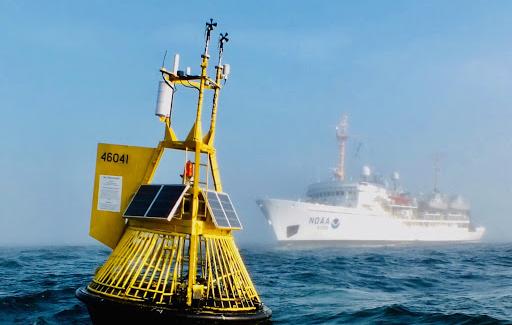Today, NOAA unveiled its new 10-year research roadmap to help the nation’s scientists, resource managers, and coastal communities address acidification of the open ocean, coasts, and Great Lakes.
The research plan sets out three major objectives for ocean, coastal, and Great Lakes acidification research, and includes regional chapters for coastal zones around the U.S., Great Lakes, territories - including Puerto Rico and American Samoa - and deep ocean regions. The three national research objectives are:
- Expand and advance observing systems and technologies to improve the understanding of and ability to predict acidification trends and processes;
- Understand the ways acidification is impacting ecologically and economically important species and the ecosystems they live in, and improve our ability to predict how these ecosystems and species may respond to acidification and other stressors; and
- Identify and engage stakeholders and partners, assess needs, and generate products and tools that support management decisions, adaptation, and resilience to acidification.
The plan highlights the importance of NOAA’s collaborations with international, interagency, and external academic and industry research partners, which have contributed vastly to our collective understanding of acidification. A team of more than 80 NOAA authors and non-NOAA technical contributors crafted the research plan, including PMEL's Simone Alin, Brendan Carter, Jessica Cross, Richard Feely, Carol Stepien and Adrienne Sutton.
PMEL's Carbon Program's mission is to advance our scientific understanding of the ocean carbon cycle by documenting the evolving state of the ocean carbon chemistry with high quality measurements on ships and autonomous platforms, studying the processes controlling the role of the ocean in the global carbon cycle, and investigating how rising atmospheric CO2 and climate change affect the chemistry of the oceans and its marine ecosystems.This research is relevant to many challenges our society is currently facing including climate change, managing our fisheries, and protecting our oceans, coasts and Great Lakes.
For additional information on NOAA’s acidification research, please refer to NOAA's Ocean, Coastal, and Great Lakes Acidification Research Plan (Full Plan or Highlights), the NOAA Ocean Acidification Program website’s plan page, and the Interagency Working Group on Ocean Acidification website.



